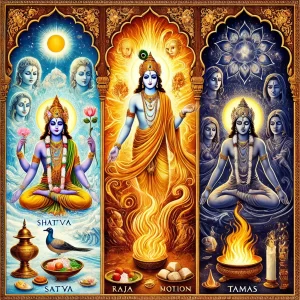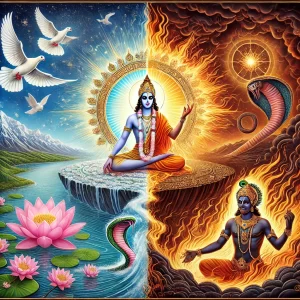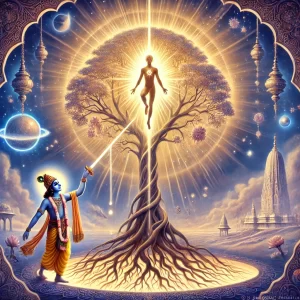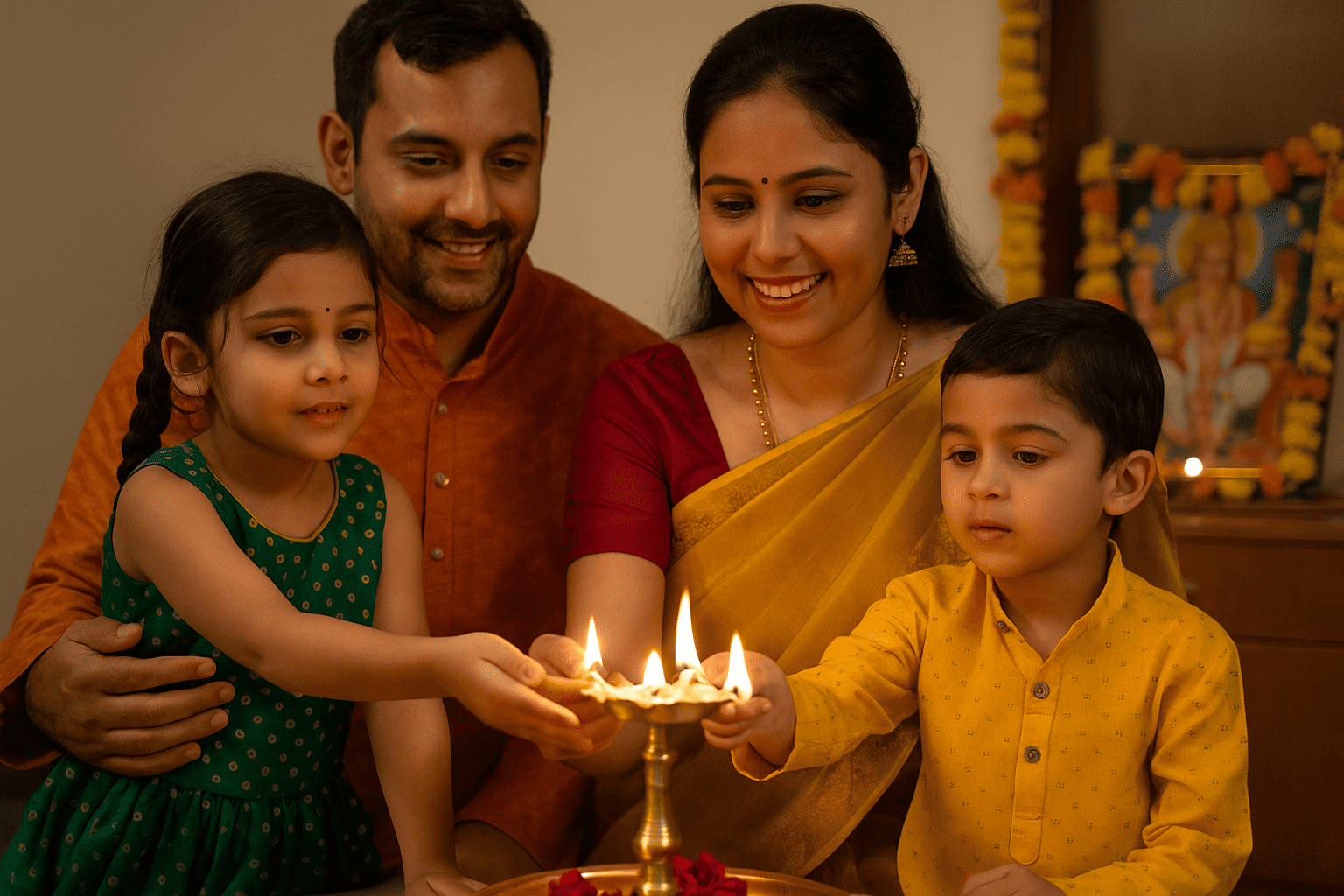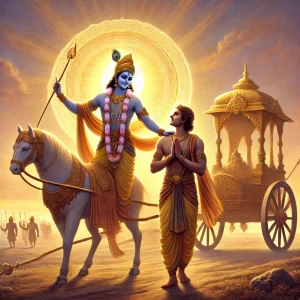
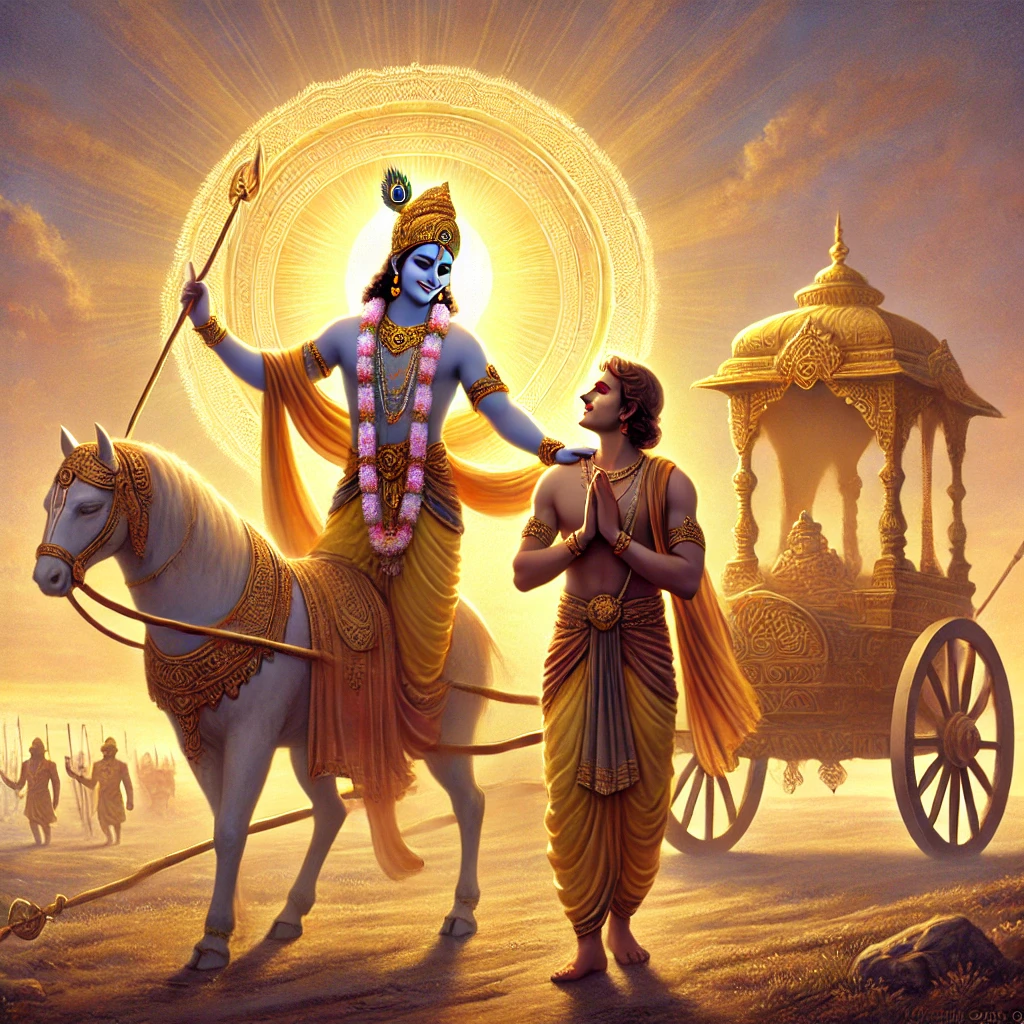
— Moksha Sannyasa Yoga: The Yoga of Liberation and Renunciation
Chapter 18, the final chapter of the Bhagavad Gita, brings together all the teachings of the previous 17 chapters. Titled Moksha Sannyasa Yoga, it focuses on the deep themes of renunciation (sannyasa) and liberation (moksha).
Here, Lord Krishna summarizes the entire journey of spiritual growth—explaining how action, knowledge, intention, and detachment come together to help a person live meaningfully and attain lasting freedom.
Unlike popular notions of renunciation as “giving up everything,” Krishna teaches a practical, life-affirming approach to detachment: Do your duty, but let go of ego and craving.
Let’s explore five profound life lessons from Chapter 18—and how we can live them out each day.
1. Renunciation Is Not About Escaping Life—It’s About Letting Go of Attachment
Krishna distinguishes between sannyasa (renunciation of selfish desire) and tyaga (renunciation of attachment to results). He clarifies that giving up actions themselves is not necessary—but giving up ego-driven motives is essential.
Verse 6: “These acts of sacrifice, charity, and austerity should not be abandoned—they must be performed with detachment.”
Lesson: You don’t have to quit your job, family, or responsibilities to find peace. Peace arises when you stop clinging to control and outcomes. Show up fully, give your best—and then surrender the result.
2. Your Nature Determines Your Path—Honor It
Krishna teaches that every person is born with a unique nature (svabhava) shaped by the three gunas. Whether your nature is that of a thinker, leader, helper, or doer, fulfilling your own dharma (duty) sincerely is better than imitating another’s path.
Verse 47: “It is better to do one’s own duty imperfectly than to perform another’s perfectly.”
Lesson: Comparison is the enemy of joy. Stop measuring your life by someone else’s timeline or choices. Instead, discover what you are meant to do, and pursue it with love, patience, and courage.
3. The Intention Behind the Action Matters More Than the Action Itself
Krishna emphasizes that knowledge, action, and the doer are all influenced by the gunas. A sattvic action is done without ego and done purely; a rajasic one is done with desire; a tamasic one is done in confusion or harm.
Verse 23–25: “Action done without attachment, without desire for reward, and without pride is sattvic.”
Lesson: Ask yourself: Why am I doing this? Even a small act—like helping a friend or working on a project—can be spiritual if done without ego or selfishness. Purify your intention, and every task becomes a path to growth.
4. The Wise Use Their Discernment to Choose Peace Over Reaction
Krishna explains that real wisdom (buddhi) helps us distinguish what leads to freedom and what leads to bondage. A person of sattvic intellect chooses calm, truth, and detachment—even when the ego wants to react or control.
Verse 30: “That which understands the path of action and renunciation, of what ought to be done and what ought not—such intellect is sattvic.”
Lesson: Before reacting, pause and reflect: Will this response lead me closer to peace or deeper into stress? The power to choose wisely in difficult moments is the sign of a maturing mind and a liberated heart.
5. Surrender to the Divine Is the Highest Form of Freedom
In the final verses, Krishna offers Arjuna a choice—free will is honored until the very end. But he gently says that the fastest, deepest path to peace is surrender—not blind submission, but trusting in divine guidance and offering one’s life with love.
Verse 66: “Abandon all varieties of dharma and surrender unto Me. I shall deliver you from all sins—do not fear.”
Lesson: Life can be overwhelming. But you don’t have to carry it all alone. When you act with honesty, serve with love, and then offer the outcome to something higher, life becomes lighter. Surrender is not weakness—it’s the deepest strength.
Final Thoughts
Chapter 18 of the Bhagavad Gita is not an ending—it’s an arrival. After a long journey of doubt, learning, and self-inquiry, Arjuna finds clarity. He chooses to stand up, do his duty, and live with surrender.
“My delusion is gone. I have regained memory. I will act according to your word.” – Arjuna (Gita 18:73)“
We, too, are invited to:
This is the Gita’s final and eternal message:
Live fully. Give freely. Let go. Trust deeply.

